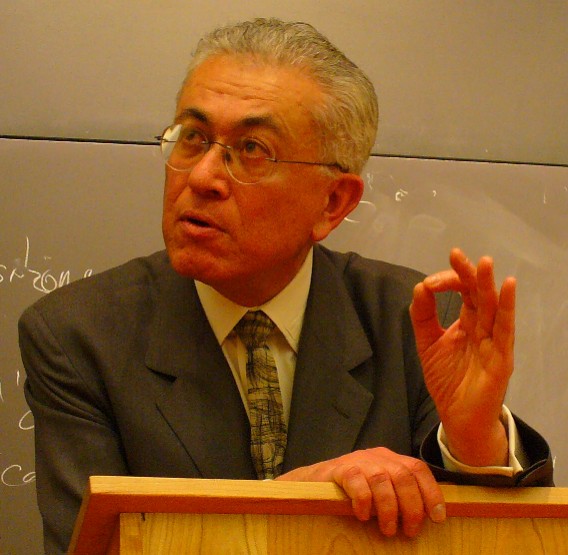Origine: False Necessityː Anti-Necessitarian Social Theory in the Service of Radical Democracy (1987), p. 400
Roberto Mangabeira Unger: Frasi in inglese
Origine: False Necessityː Anti-Necessitarian Social Theory in the Service of Radical Democracy (1987), p. 97
Origine: Law in Modern Societyː Toward a Criticism of Social Theory (1976), p. 260
Origine: Plasticity Into Power: Comparative-Historical Studies on the Institutional Conditions of Economic and Military Success (1987), p. 2
Origine: The Self Awakened: Pragmatism Unbound (2007), p. 144
Origine: False Necessityː Anti-Necessitarian Social Theory in the Service of Radical Democracy (1987), p. 467
Origine: The Self Awakened: Pragmatism Unbound (2007), p. 237
Quoted in David Remnick, The Bridgeː The Life and Rise of Barack Obama (2010), p. 185-6
On Barack Obama
Origine: The Self Awakened: Pragmatism Unbound (2007), p. 142
Origine: Democracy Realizedː The Progressive Alternative (1998), p. 15
Origine: Democracy Realizedː The Progressive Alternative (1998), p. 250-1
Origine: Social Theoryː Its Situation and Its Task (1987), p. 65
Origine: Law in Modern Societyː Toward a Criticism of Social Theory (1976), p. 259-260
Origine: The Religion of the Future (2014), p. 356
Origine: The Self Awakened: Pragmatism Unbound (2007), p. 24
Origine: The Religion of the Future (2014), p. 121 (explaining the religious tradition Unger calls "struggling with the world")
Quoted in Meena Hart Duerson, "Obama’s former Harvard professor: ‘He must be defeated’ː Roberto Unger called for Obama’s defeat in a recent YouTube video," New York Daily News, Monday, June 18, 2012
On Barack Obama
Origine: Accessed at http://www.nydailynews.com/news/politics/obama-harvard-professor-defeated-article-1.1097944 on December 4, 2015
Origine: The Self Awakened: Pragmatism Unbound (2007), p. 134
Origine: The Self Awakened: Pragmatism Unbound (2007), p. 233
Origine: Social Theoryː Its Situation and Its Task (1987), p. 45-46
Origine: The Self Awakened: Pragmatism Unbound (2007), p. 130
Origine: Free Trade Reimaginedː The World Division of Labor and the Method of Economics (2007), p. 210
Origine: Democracy Realizedː The Progressive Alternative (1998), p. 32
Origine: The Self Awakened: Pragmatism Unbound (2007), p. 18
Origine: Democracy Realizedː The Progressive Alternative (1998), p. 165
Origine: The Self Awakened: Pragmatism Unbound (2007), p. 63
Origine: The Religion of the Future (2014), p. 295
Origine: The Self Awakened: Pragmatism Unbound (2007), p. 32
Origine: The Critical Legal Studies Movementː Another Time, A Greater Task (2015), p. 105
Origine: Plasticity Into Power: Comparative-Historical Studies on the Institutional Conditions of Economic and Military Success (1987), p. 169
